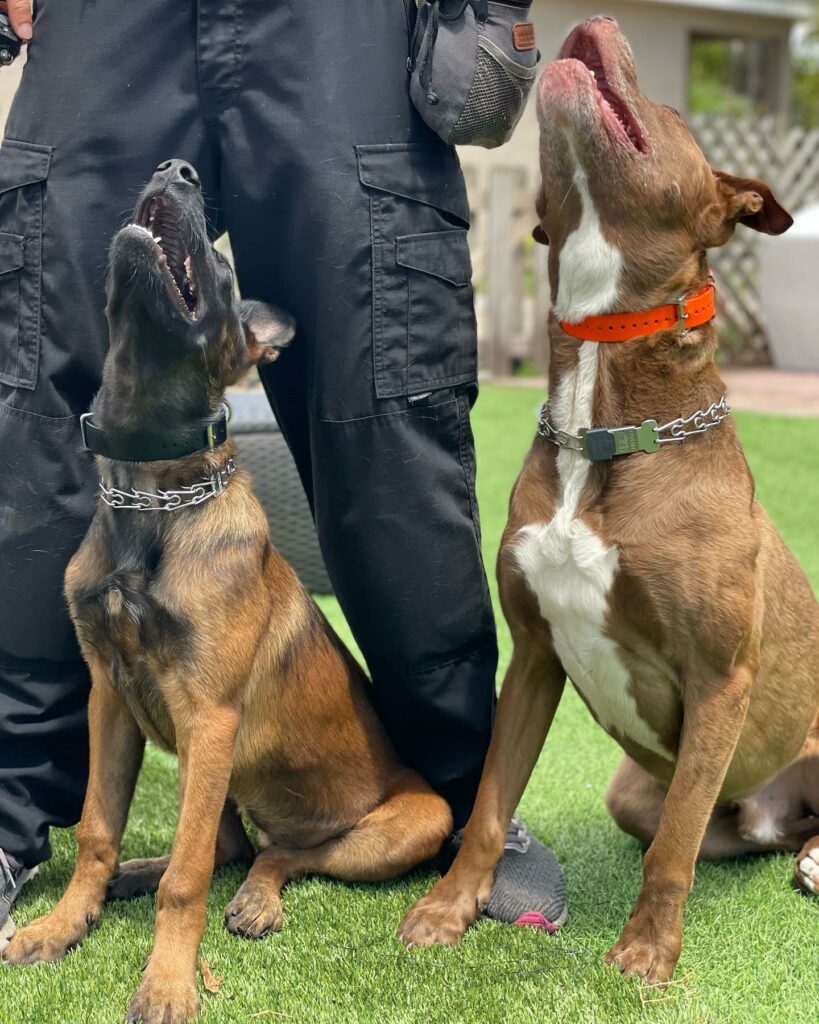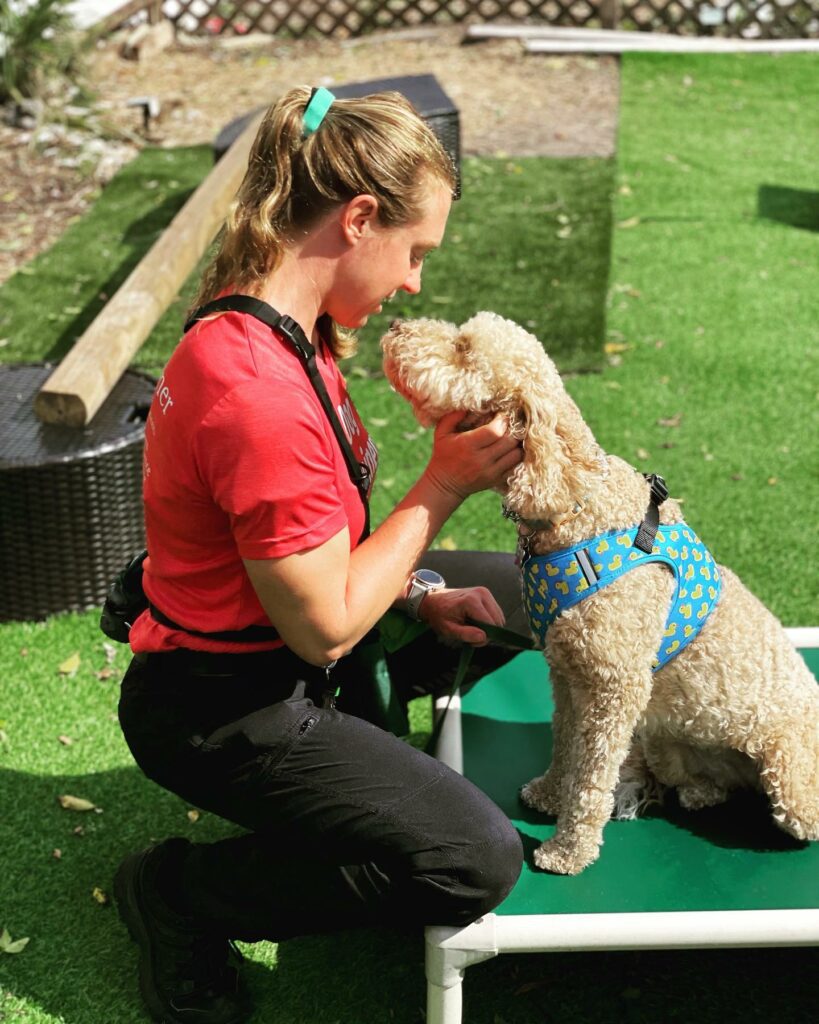Julie Madison is a certified dog trainer with Top Tier K9 in Bradenton. She found her passion for working with rescue dogs when she was just 15 years old, after adopting and training a German Shepherd/Pit mix with significant reactivity issues. Since then, she’s developed a unique approach to rehabilitating, training, and socializing a variety of dogs.

Recently, we sat down with Julie to discuss the value of her board and train program for those considering rescuing a dog from a shelter. Here’s what she had to say…
Why should people consider a board and train program before bringing a rescue dog home?
The main reason is that I can lay really solid foundations. Right from the start, I know what to do with dogs to get them to start leash walking appropriately and early on. I can address play biting, jumping, housebreaking, and a lot of other issues – so that by the time the puppy or the dog goes home, it already has a solid grasp on the basics.
Can you explain a bit more about what the board and train program consists of?
The program addresses everything about your dog, including how to communicate appropriately with them. By the end of four weeks, we start working on reliable off-leash obedience. Most dogs leave my program with about an 80% reliability in obedience, which is a level of reliability that’s hard to achieve even with six months of private one-on-one training.
During the 4-week program owners come in once a week to learn to progress and maintain the work I have done and start building a relationship with their new pack member. As a franchise of Top Tier K9, clients have access to all their online resources and the world’s only virtual reality training program allowing the training of owners before they ever get their hands on a dog.
Is it easier, harder, or the same to train a shelter dog compared to a dog that’s already been living in a home?
It’s actually easier for dogs to transition into the board and train program than for owners to let them go for four weeks. The biggest challenge is often the emotional attachment owners feel towards their dog. This can make it easier to transition a dog directly from the shelter into the board and train program before they go to their forever home.

But, it doesn’t matter if your dog has been with you for two, five, or ten years – I can still train it.
A problem I often see is that dog owners tend to ignore the real issues their dog presents until it’s an emergency. This leads to behavioral surrenders at shelters, where owners are incredibly frustrated or have seen the dog behave in ways that were so traumatizing, that they can’t imagine a good life with it anymore.
My board and train program intervenes before this point, setting both the family and the dog up for success by laying a solid foundation and preventing the development of severe behavioral problems.
How do you work with shelter dogs and their new owners to ensure a smooth transition?
If you’re considering rescuing, I recommend reaching out to me even before picking out the dog. I have a network of shelters and rescues, and based on what you’re looking for, we can find a dog that’s likely to fit your lifestyle.
Once an appropriate dog is identified, I can either pick up the dog from the shelter or the owners can bring the dog to me. It’s essential that the dogs are up-to-date on vaccinations, and I need proof of this before starting the program.
If you’ve already selected your dog, that’s no problem. In this case, you just need to contact me to discuss my availability and schedule your training dates.
Do you assist in introducing shelter dogs to the families’ other pets or children?
Yes, I teach owners how to safely introduce the new dog to the family and other pets. During the four-week program, owners come in once a week to learn how to interact and handle their dog, which is crucial for building a healthy relationship.

I also place a strong emphasis on teaching kids how to work with and train the dog. It’s not just about the dog learning – it’s about the entire family understanding how to interact with the dog positively and constructively.
Families are also welcome to bring their other dogs to the training facility for a meet and greet, to observe their behaviors, and keep an eye out for any potential red flags.
What about the financial and time commitment required for a board and train program, especially when it comes to a newly adopted dog?
While board and train is an upfront investment, it’s less expensive in the long run compared to ongoing private sessions, with faster and more reliable results. I also help my clients save money by recommending the right equipment, which can help prevent costly mistakes down the line. For example, choosing the right type of crate can prevent a dog from injuring itself trying to escape, which could lead to expensive veterinary bills.
Training can also prevent scenarios where a dog might run away and get hit by a car or bite someone, which could result in even higher medical or legal expenses. Overall, while there’s an upfront cost to the program, it’s designed to save money in the long run by preventing common problems that can arise from not properly training the dog and owner. On average, dogs live 10-15 years, so both dogs and owners benefit from having a dog that is well-trained from the start.
Any final thoughts on the importance of early, professional training for adopted dogs?
Getting dogs into a training program as soon as possible is crucial. It allows us to address and prevent behavioral issues before they escalate. For families considering adopting, understanding and committing to the training process can make a huge difference in the success and happiness of both the dog and the family.
To learn more about Julie’s board and train programs, give her a call at (203) 733-7183 or check out her Facebook page for a behind-the-scenes look at the training, facility, and more!





One thought on “A Fresh Start for Shelter Dogs: How Board & Train Programs Prepare Rescues for Family Life”
Nice article. I wish people would adopt more. We adopted three animals and love them. One actually just passed.